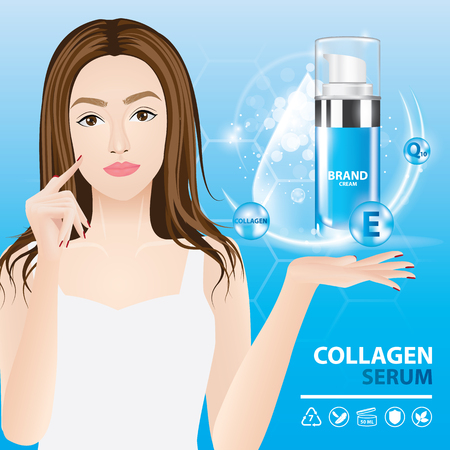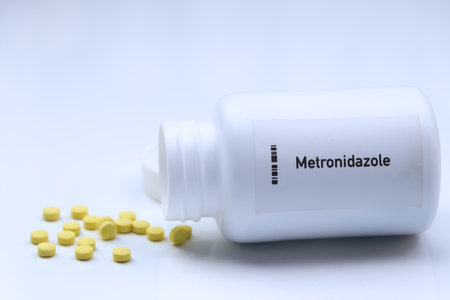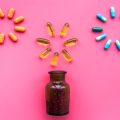1. Introduction to Biotin and Its Popularity in the U.S.
Biotin, also known as vitamin B7, is a water-soluble vitamin that plays a crucial role in the body’s energy production and metabolism. In recent years, it has become a household name across the United States, especially when it comes to health, beauty, and wellness trends. But what exactly is driving its surge in popularity, particularly among those seeking better hair growth?
What Is Biotin?
Biotin is naturally found in many foods such as eggs, nuts, seeds, and certain vegetables. The body needs only small amounts of biotin to function properly, but it’s often marketed in much higher doses in supplement form.
Common Food Sources of Biotin
| Food | Approximate Biotin Content (mcg/serving) |
|---|---|
| Egg yolk (1 large) | 10 |
| Almonds (1/4 cup) | 15 |
| Sweet potato (1/2 cup) | 2.5 |
| Spinach (1/2 cup cooked) | 0.5 |
| Salmon (3 oz) | 5 |
Biotin Supplement Trends Among Americans
The rise of social media influencers and celebrities promoting hair care routines has made biotin supplements a staple in many American households. According to market research, sales of biotin-containing products have steadily increased over the past decade. They are commonly available in various forms such as gummies, capsules, and even shampoos labeled as “hair growth boosters.”
Why Is Biotin Linked to Hair Health?
The connection between biotin and hair growth is largely based on its role in supporting the production of keratin—a key protein that makes up hair, skin, and nails. Many Americans include biotin in their daily beauty routines with the hope of achieving thicker, stronger hair. Here’s a quick look at why people reach for biotin:
| Reason for Use | Description |
|---|---|
| Hair Growth Support | Aim to boost hair length and thickness |
| Nail Strengthening | Reduce brittleness and promote healthy nails |
| Smoother Skin | Belief that it improves skin texture and glow |
| General Wellness | Additional support for overall metabolism and energy levels |
Cultural Influence on Biotin Usage in the U.S.
The American beauty industry heavily markets supplements like biotin as part of daily self-care rituals. The promise of quick results—especially for hair—resonates with many looking for convenient solutions to beauty concerns. While some rely on personal testimonials or influencer endorsements, others may be drawn by the “natural” image associated with vitamins.
2. The Science of Biotin: How Does It Work in the Body?
To understand biotins role in hair growth, its important to first look at what biotin actually does inside our bodies. Biotin, also known as vitamin B7, is a water-soluble vitamin that plays a key part in several metabolic processes. But what exactly does that mean for your hair, and why do so many people believe it helps with hair growth?
Biotins Biochemical Role
At its core, biotin acts as a coenzyme for carboxylase enzymes. These are special proteins that help kickstart important chemical reactions in your body. Without enough biotin, these reactions cant happen efficiently.
Main Functions of Biotin in the Body
| Function | Description | Why It Matters for Hair |
|---|---|---|
| Metabolism of Macronutrients | Helps convert carbohydrates, fats, and proteins into usable energy. | Provides energy needed for fast-growing cells like those in hair follicles. |
| Cell Growth and Repair | Supports DNA replication and repair, essential for new cell formation. | Promotes the production of healthy new skin and hair cells. |
| Keratin Production | Aids in synthesizing keratin, the main structural protein in hair. | Stronger keratin means stronger, more resilient hair strands. |
The Link Between Biotin and Hair Growth
Hair is made primarily of keratin. Since biotin helps create keratin, it makes sense to think that more biotin equals better hair. In reality, if youre already getting enough biotin from your diet—which most Americans do—extra supplements usually don’t make a big difference. However, people with a true biotin deficiency may notice brittle nails, thinning hair, or even hair loss until their levels are restored.
How Biotin Supports Healthy Hair (Step-by-Step)
- You eat foods rich in biotin (like eggs or nuts).
- Your body absorbs the biotin and uses it as a helper molecule for enzymes.
- These enzymes help break down nutrients from your food and produce energy.
- This energy supports rapid cell division needed for growing hair follicles.
- Biotin also helps synthesize keratin for stronger, healthier hair shafts.
If you have enough biotin in your system, your body can keep up with the demands of making new hair cells and maintaining the strength of each strand. But if youre low on biotin, these processes slow down—sometimes resulting in weaker or thinning hair.

3. Clinical Evidence: What Do Studies Say About Biotin and Hair Growth?
When it comes to hair growth supplements, biotin is a big name in the U.S. But does science actually back up the hype? Let’s break down what clinical research and medical studies reveal about biotin’s real impact on hair growth for Americans.
What Is Biotin, and Why Is It Linked to Hair?
Biotin, also known as vitamin B7, plays a role in converting food into energy and keeping your skin, nails, and hair healthy. Since its water-soluble and found in many foods, true biotin deficiency is rare in the U.S. However, many Americans take extra biotin hoping for thicker, faster-growing hair.
Key Clinical Studies on Biotin and Hair Growth
Researchers have conducted several studies to see if biotin truly helps with hair loss or thinning. Here’s a look at what they found:
| Study | Population | Main Findings | Notes |
|---|---|---|---|
| 2012 – Journal of Clinical & Aesthetic Dermatology | Women with thinning hair | Improved hair growth in those with underlying biotin deficiency; minimal effect for others | No significant benefit for people with normal biotin levels |
| 2017 – Skin Appendage Disorders Review | General review (adults) | No strong evidence supporting routine biotin use for hair growth in healthy people | Most benefits seen only in cases of diagnosed deficiency |
| Mayo Clinic Reports | U.S. patients using supplements | No direct improvement in hair thickness or speed without deficiency present | High doses can interfere with lab tests |
What Does This Mean for Everyday Americans?
If you have a biotin deficiency—which is uncommon—biotin supplements may help with hair loss or thinning. However, most people in the U.S. get enough biotin from their diets. Large-scale clinical trials haven’t shown clear benefits for taking extra biotin if you’re not deficient.
The Bottom Line from Medical Experts
The American Academy of Dermatology points out that there’s no strong scientific proof that biotin supplements boost hair growth in healthy individuals. Most dermatologists recommend checking with your healthcare provider before starting any supplement, especially since high doses of biotin can mess with certain lab results.
4. Biotin Deficiency vs. Supplementation: Who Actually Benefits?
When it comes to biotin and hair growth, a big question is whether taking extra biotin actually helps most people, or if the benefits are limited to certain groups. Lets break down how common biotin deficiency really is in the United States and who, if anyone, might see real improvements in their hair from supplementation.
How Common Is Biotin Deficiency in America?
Biotin deficiency is actually pretty rare in the United States. Most Americans get enough biotin through a regular diet that includes foods like eggs, nuts, whole grains, and some vegetables. The National Institutes of Health points out that true biotin deficiency mostly occurs in specific situations, not in the general population.
Main Causes of Biotin Deficiency
| Cause | Description |
|---|---|
| Genetic disorders (e.g., biotinidase deficiency) | Rare inherited conditions that affect biotin processing |
| Poor nutrition/malnutrition | Lack of access to a balanced diet over time |
| Certain medications | Long-term use of anti-seizure drugs or antibiotics can interfere with biotin absorption |
| Pregnancy | Increased demand for nutrients can sometimes lead to lower biotin levels |
| Alcoholism | Chronic alcohol consumption can impact nutrient absorption, including biotin |
Who Really Benefits From Biotin Supplements?
If you have a true biotin deficiency, supplementing with biotin can help fix related symptoms—like thinning hair or brittle nails. But for most healthy adults with a normal diet, extra biotin doesn’t seem to make a difference for hair growth. In fact, most scientific studies haven’t found strong evidence that biotin supplements help people without a diagnosed deficiency.
Groups That May Benefit from Supplementation:
- People with genetic disorders affecting biotin metabolism
- Individuals with poor dietary intake or malnutrition
- Pregnant women with low blood levels of biotin (only under medical advice)
- People on certain long-term medications that reduce biotin absorption
Does More Biotin Equal More Hair?
For most Americans, popping an extra biotin pill won’t magically boost hair growth. Real benefits are usually only seen when there’s an actual deficiency to correct. If you’re eating a balanced diet and don’t have any underlying health issues affecting nutrient absorption, your body likely has all the biotin it needs for healthy hair.
5. Consumer Culture, Marketing, and the Biotin Boom
The American Obsession with Quick Fixes
In the United States, there’s a strong cultural drive for instant results—especially when it comes to beauty and wellness. Americans are always searching for the next big thing that promises quick improvements, whether its in weight loss, skincare, or hair growth. This mindset creates fertile ground for supplements like biotin to become popular, especially when theyre marketed as easy solutions to common problems such as thinning hair.
Marketing Tactics: Selling the Dream
Brands selling biotin products use a variety of marketing strategies to appeal to consumers’ desires. Here are some common tactics:
| Marketing Tactic | Description | Example |
|---|---|---|
| Celebrity Endorsements | Famous personalities claim to use biotin for their healthy hair. | Social media influencers posting “before and after” pictures. |
| Bold Claims | Packaging promises rapid hair growth or thicker hair within weeks. | Bottles labeled “Grow Hair Fast!” or “Stronger Hair Guaranteed.” |
| Emotional Appeals | Ads focus on confidence and self-esteem linked to having great hair. | Commercials featuring people regaining confidence after using biotin. |
| Scientific Language | Phrases like “clinically proven” or “backed by science” add credibility—even if evidence is weak. | Websites citing vague studies without detailed references. |
The Power of Social Media Influencers
Social media platforms like Instagram, TikTok, and YouTube play a huge role in shaping how Americans view biotin. Influencers often receive sponsorships from supplement brands and share positive reviews with their followers. These posts can go viral, reaching millions of people almost instantly. The casual, friendly tone of influencers makes recommendations feel more authentic—even if the scientific evidence behind the claims is lacking.
The Disconnect Between Hype and Science
Despite the popularity of biotin in American culture, scientific research shows that only people with a true biotin deficiency see noticeable benefits from supplementation. Still, marketing messages and social trends continue to promote biotin as a miracle cure for hair growth. This gap between public perception and scientific reality highlights the powerful influence of consumer culture and advertising in shaping health decisions in America.
6. Risks, Side Effects, and Interactions: What Should You Know?
When it comes to biotin supplements and their impact on hair growth, many people assume more is always better. However, like most nutrients, taking biotin in excess can lead to unintended consequences. If youre considering adding high-dose biotin to your routine, its important to understand the potential risks and how it might interact with other medications or even lab tests.
Possible Side Effects of Excessive Biotin Intake
Biotin is a water-soluble vitamin, so your body usually flushes out what it doesnt need. Still, taking large doses—far above the recommended daily allowance (RDA)—can sometimes cause side effects. While rare, some people report mild symptoms such as:
- Skin rashes
- Digestive upset (nausea, cramping)
- Problems with insulin release or blood sugar levels
Drug Interactions and Laboratory Test Interference
This is where things get technical—and potentially risky. High levels of biotin can interfere with certain laboratory tests commonly used in the U.S., leading to inaccurate results. This is especially true for blood tests that use immunoassay technology, which includes some thyroid function tests, cardiac troponin tests (used for heart attack diagnosis), and hormone level measurements.
If you are taking biotin supplements, be sure to tell your healthcare provider before any lab work. Heres a quick look at how biotin could impact medical testing and medications:
| Category | Potential Issue | Recommendation |
|---|---|---|
| Lab Tests (e.g., thyroid, troponin) | False high or low results | Stop biotin 2-3 days before testing; inform your doctor |
| Certain Medications (e.g., anti-seizure drugs) | Reduced effectiveness of medication or altered vitamin levels | Discuss supplement use with your pharmacist/doctor |
Safety Guidelines in the U.S.
The Food and Nutrition Board recommends a daily intake of 30 micrograms (mcg) for adults, which is usually met by a typical American diet. Many hair growth supplements contain much higher doses—sometimes thousands of micrograms per serving. Currently, there’s no established upper limit for biotin because toxicity is rare. However, the FDA has issued warnings about supplement-induced interference with lab tests.
- If you choose to take biotin supplements, stick to reputable brands and avoid megadoses unless specifically directed by your doctor.
- If you’re pregnant or breastfeeding, consult your healthcare provider about appropriate intake.
- If you’re scheduled for bloodwork or diagnostic testing, stop taking biotin at least 48 hours beforehand—or as advised by your doctor—to reduce the risk of skewed test results.
Key Takeaways on Biotin Safety
- Biotin is generally safe at recommended levels but can cause problems if overused.
- Always communicate supplement use with your healthcare team—especially before lab tests or if you’re on prescription medications.
- The best approach is moderation and transparency with medical professionals to ensure both your hair health and overall well-being stay on track.
7. Conclusion: Biotin for Hair—Myth, Miracle, or Misunderstood?
When it comes to biotin and hair growth, American consumers are often bombarded with big promises on social media, supplement bottles, and beauty blogs. But what does the science actually say? Lets break down the facts in a straightforward way so you can make the best choice for your hair health.
What We Know About Biotin
| Claim | Evidence | Reality Check |
|---|---|---|
| Biotin helps everyone grow thicker hair. | Little scientific support for people without a deficiency. | Not true for most healthy Americans. |
| Lack of biotin leads to hair loss. | Strong evidence if you have a rare deficiency. | True, but deficiencies are uncommon in the US. |
| More biotin equals better hair. | No proven benefit from mega-dosing. | No advantage once needs are met; excess is just excreted. |
The Limits of Biotin Supplements
If youre eating a balanced diet—including foods like eggs, nuts, salmon, and whole grains—youre likely getting enough biotin. Most hair loss in Americans is caused by genetics, stress, hormones, or medical conditions—not vitamin shortages. Taking extra biotin wont fix these issues.
Who Might Really Benefit?
- People with a diagnosed biotin deficiency (rare in the U.S.)
- Certain pregnant women (under doctor supervision)
- Individuals with specific genetic disorders affecting biotin absorption
Potential Downsides
- High-dose biotin can interfere with lab results (especially thyroid and heart tests)
- No FDA oversight on supplement purity or dosage accuracy
- Wasted money if you already meet your daily needs through food
Setting Realistic Expectations
If youre hoping for miracle hair growth from biotin alone, its important to be realistic. While taking a supplement is unlikely to harm most healthy adults, its not a magic bullet for thinning hair or baldness. A healthy lifestyle—balanced nutrition, stress management, gentle hair care—is still your best bet. And if youre experiencing sudden or unexplained hair loss, talk to your doctor before reaching for supplements.


